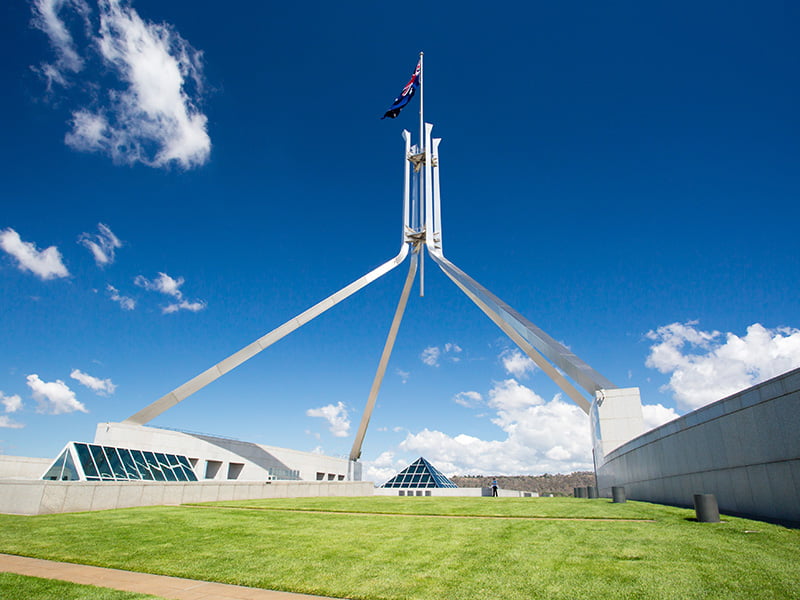The minority report of a Senate committee looking at government’s controversial “anti-trolling” bill says it needs “substantial amendments” and that there is not enough time to get this done before the election.
The Legal and Constitutional Affairs Legislation Committee tabled its report on the Social Media (Anti-Trolling) Bill 2022 on Thursday afternoon.
The government’s majority report called for the bill to be passed after three minor amendments are made, but Labor senators minority report went further, signaling that much more significant changes are needed.
The legislation in any form is now highly unlikely to pass before the May election, with only three sitting days of Parliament remaining, and these to be largely devoted to the budget.

The bill creates a “new novel framework to allow Australians to respond to defamatory content posted on social media”, providing a pathway for people who believe they have been defamed by an online comment to identify the anonymous poster of it, and serving to reverse the High Court’s Voller decision.
The reforms make administrators of social media pages no longer liable for comments made on their pages, and gives social media companies an exemption from liability if they have an adequate complaints scheme in place.
The bill has been widely panned by esteemed defamation lawyers, tech firms, legal organisations and the eSafety Commissioner, with most criticising the use of “trolling” in the bill’s title and saying that it would leave victims with no recourse in many cases.
In the majority report, Committee Chair Liberal Senator Sarah Henderson said that three amendments are needed before the bill is passed by Parliament.
Social media page owners should still be liable for comments on their pages if they knowingly encourage the publication of the material and doesn’t not remove it after being made aware of it, the Committee said.
The complaints scheme required by the bill should also allow social media companies to take down alleged defamatory comments within 72 hours if the poster has been requested to remove it but does not do so, the report said.
The final amendment needed according to the government-led Committee is that personal information should be released on a social media commenter if the court is satisfied that doing so would present a risk to their safety or someone else’s safety.
After these changes are implemented, the legislation should be passed, the government-led Committee said.
Senator Henderson acknowledged that many submitters had issues with the name of the bill and also claimed that the “considerable uncertainty” and length of time around the state governments’ defamation reforms make the reforms necessary.
In a minority report, Labor Senator Kim Carr said the bill is an “ill-considered response to the problem of online trolling”, is “poorly conceived” and would provide the “vast majority of Australians without any practical means to redress harms caused by the scourge of online trolling, and may in fact make the problem of online trolling significantly worse”.
The recommendations in the majority report do not go far enough, and significant reforms are needed for Labor to offer its support, Senator Carr said.
“Labor members do not believe the recommendations for the amendments to this bill in the majority report adequately address many of the concerns raised about the bill’s operation, and that significant further amendments would be required to ensure this bill is fit for purpose,” Senator Carr said in the minority report.
“Labor members do not believe there is sufficient time to draft, consult on and then properly debate in the Parliament the wide range of significant amendments to this bill that would be required to make it fit for purpose, and that are necessary to ameliorate the significant adverse consequences that would arise from its operation.”
The Opposition said that defamation reforms in relation to social media are needed, and that legislation is needed to address the Voller decision.
But in the minority report, Senator Carr instead called for an urgent short bill to be passed to deal with the issues of liability of Australian social media page owners in the wake of the High Court’s decision.
Labor also called for a broad inquiry into the existing regulatory regime for media, including social media, as the best means of devising effective remedies for online trolling.
Liberal Senator Andrew Bragg also included additional comments to the report, acknowledging many concerns around the bill and saying that he is “open-minded” about other suggestions to improve it.
Editors note: This story has been updated to better reflect that stated views were of Labor senators in a minority report from a committee rather than formalised Labor policy.
Do you know more? Contact James Riley via Email.

